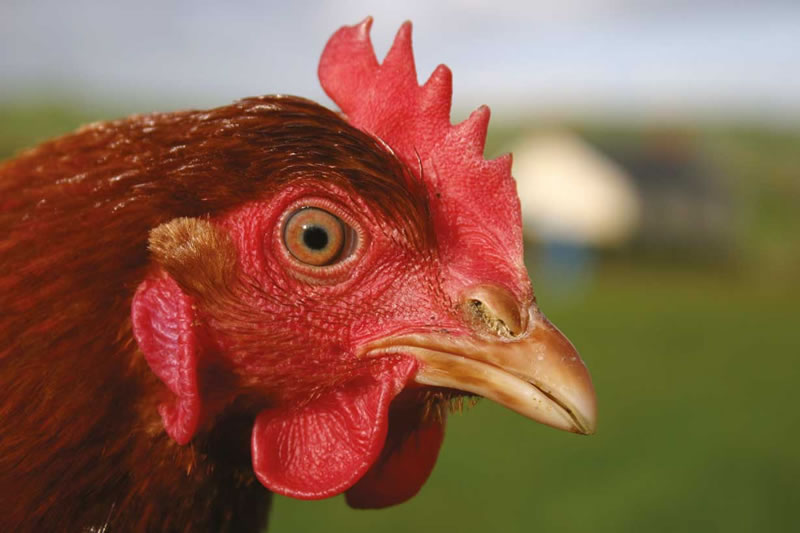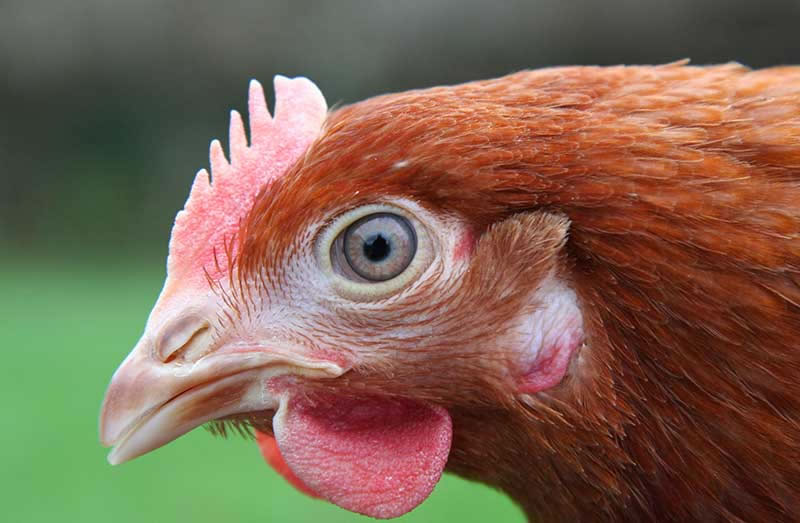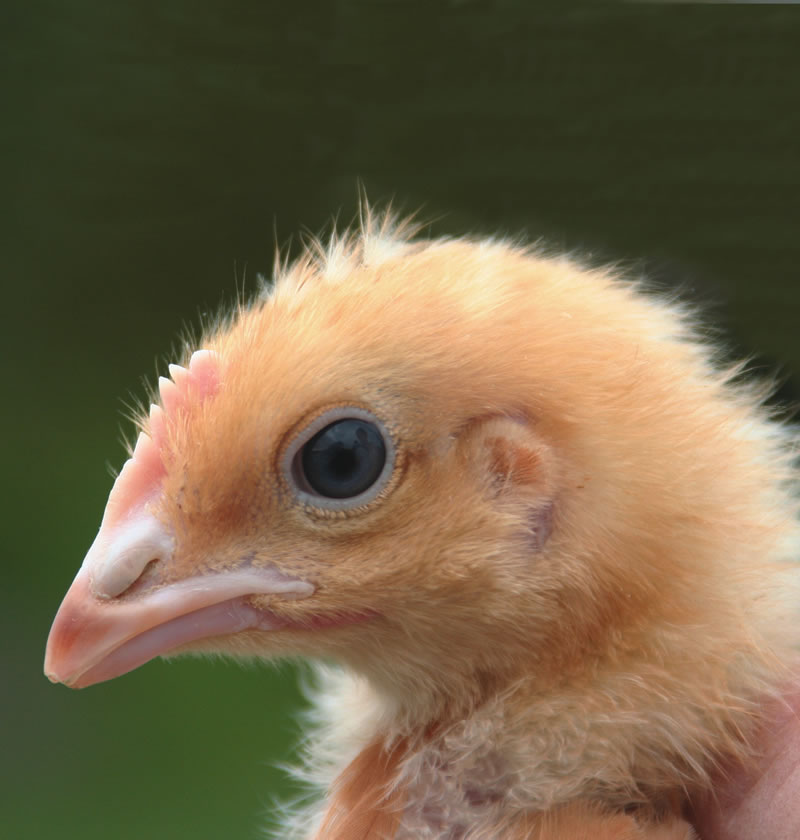
The British Free Range Egg Producers' Association (BFREPA) says the Government should now rule out the possibility of banning beak trimming in 2016.
The call follows the revelation that a second egg production unit involved in the University of Bristol trials has suffered an outbreak of injurious pecking. As the Ranger reported last month, the unit, which is in Yorkshire, has suffered 15 per cent mortality amongst birds that are being managed without beak trimming. An earlier outbreak of injurious pecking - on a Bristol trial farm in East Anglia - resulted in 20 per cent mortality amongst the birds. BFREPA says the evidence is now clear.
"The revelation of injurious pecking in a second flock is more evidence to support what BFREPA has always said," said Robert Gooch, the association's director of policy. "Two of the three commercial flocks in the trials have now failed, causing stress to the managers of the units involved and serious welfare concerns for the birds themselves. I know that there are 20 flocks involved in the trials, but the majority of them are not commercial size flocks. There is now enough evidence for the Government to go ahead and make a decision that beak trimming will not be banned in 2016. It should do so."
When cannibalism broke out in a 16,000-bird free range flock in East Anglia, Christine Nicol, the professor in charge of the University of Bristol trials, said that there had been no outbreaks in any other flocks. But as we revealed last month, a trial flock in Yorkshire has now suffered an outbreak of injurious pecking. The farm affected is a 32,000-bird multi-tier unit divided down the middle with 16,000 birds beak trimmed and 16,000 with their beaks intact. All the birds are being managed in exactly the same way but injurious pecking amongst the birds whose beaks have not been trimmed has resulted in high levels of mortality. The Ranger was told that the injurious pecking amongst the birds had resulted in infection.

A spokeswoman for the Department for Environment, Food and Rural Affairs (Defra) has now confirmed the outbreak, although she said that, unlike on the East Anglia unit, emergency beak trimming was not carried out in Yorkshire. She said, "There has been injurious pecking in a second flock, but other strategies were put in place which avoided the need for emergency beak trimming and the situation has improved."
Although Defra says the situation has improved on the Yorkshire production unit, inquiries by the Ranger suggest that mortality amongst the non-beak-trimmed birds is still running at seven times the mortality rate amongst the beak-trimmed birds. We put these figures to the Defra spokeswoman and asked her if she could explain the strategies that she said had improved the situation. She said, "As the trials are ongoing I can’t offer you any more information I’m afraid."
Robert Gooch said the revelations from the farm justified the lobbying that BFREPA had been conducting ever since the Government had announced that the issue of beak trimming would be reviewed in 2015 with the intention that a ban be introduced the following year. "Our view is there is enough evidence already to make a decision."
A ban on beak trimming was originally due to come into force at the beginning of 2011. It was put off on the advice of the Farm Animal Welfare Council (FAWC) because of the council's concerns about feather pecking and cannibalism, although the Government did insist that the industry use only infrared beak trimming in future. The Government warned at the time that the position would be reviewed in 2015 and it said the industry should expect that the ban would be reinstated in 2016. It said that the egg industry should make preparations to be able to keep flocks without the use of beak trimming from that date, and it commissioned the University of Bristol to conduct trials to show how non-beak-trimmed commercial birds could be successfully managed. It is on farms involved in those trials where pecking has broken out.

At the BFREPA conference in 2012 Christine Nicol confidently stated that it was possible to manage laying flocks without the use of beak trimming. "Intact beak flocks can be managed without problems. We know they are not always, but they can be. We know from our colleagues in the Netherlands that they are getting mortality of 3.5 per cent in large, commercial, intact beak, non-organic flocks," she said. During her presentation to the conference, she said that, under the terms set for the University of Bristol trials, five per cent mortality at 40 weeks would be seen as acceptable and nine per cent mortality at end-of-lay. The mortality rates experienced on the farms in East Anglia and Yorkshire are much higher than those figures.
The 2015 review is due to be carried out by the Beak Trimming Action Group (BTAG), a body comprised of representatives from the egg industry, as well as welfare groups, veterinarians, academics and Government. Eight vets who are all members of the British Veterinary Poultry Association (BVPA) - including the association's president, Keith Warner - have already written to Environment Secretary Owen Paterson to tell him that going ahead with the ban at this time would be bad for animal welfare. They said they wanted the ban put off until it could be shown that commercial laying flocks could be managed without the risk of injurious pecking.
This is the position held by the British Egg Industry Council (BEIC) and it was restated by chief executive Mark Williams recently during a presentation at the Pig & Poultry Fair at Stoneleigh. "We at BEIC feel that when the discussion was taking place - and this is in the realms of politics now, back in 2010, when the coalition Government came into power - it was about hot blade trimming. It wasn't about IRBT (infrared beak trimming). There was a lot of confusion took place at that time. We and others in the egg industry are seeking to educate MPs. We have had the Minister and Shadow Minister out on farm so they can see what the process is.
"Our view is quite clear. It is well documented in the press now. Some of the flocks within the Bristol University trials have gone horribly wrong, with high levels of mortality - and it's just horrible, it really is. It is not what we are about. So we believe very clearly that any ban on infrared beak trimming must be delayed until science can clearly demonstrate that we can run flocks of birds without the need for beak trimming."
There is a feeling that the current Environment Secretary may be sympathetic to the concerns of the egg industry. The issue was raised directly with Owen Paterson during a visit by the Environment Secretary to the farm of free range egg producer, and BFREPA member, Alex Woollam in Oswestry, Shropshire. Alex, one of Owen Paterson's constituents, subsequently said he thought the Minister clearly understood farming and that he had listened carefully to the issues raised.
